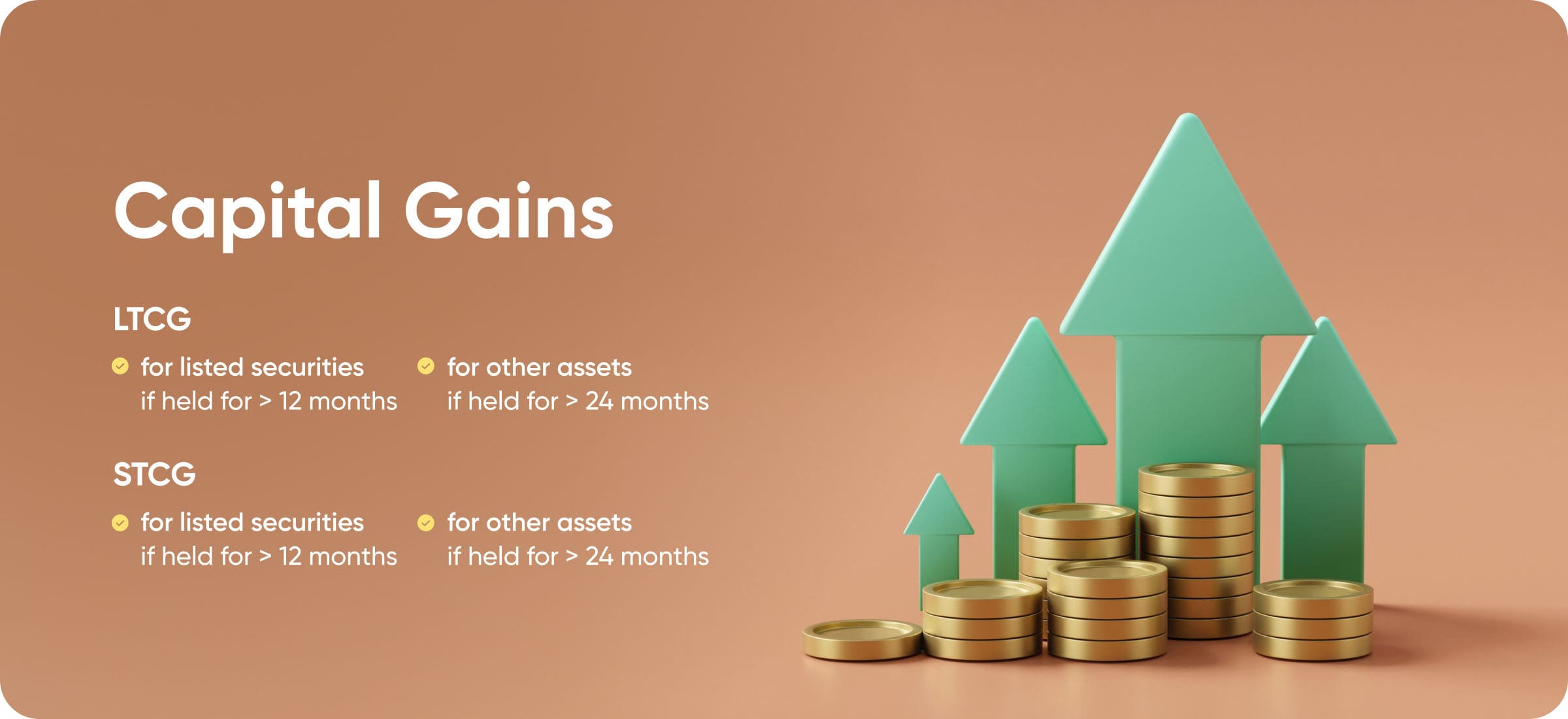Capital Gain on Sale of Shares

Investing in the stock market is exciting — but understanding the profits you make when you sell shares is just as important. That’s where capital gain comes in.
If you’ve ever sold shares for more than you paid for them, you’ve experienced a capital gain. But how does it really work? Let’s break it down.
???? What is Capital Gain?
Capital gain is the profit you earn when you sell a capital asset — like shares — for more than what you paid for it.
Formula:
Capital Gain = Selling Price – Purchase Price
For example:
You buy a share at ₹100
You sell it at ₹150
Capital Gain = ₹50 per share
???? Types of Capital Gains on Shares
In India, capital gains on shares are divided into two types, based on how long you hold the shares:
1. Short-Term Capital Gain (STCG)
Applies when shares are sold within 12 months.
Taxed at 15% under Section 111A of the Income Tax Act (plus cess/surcharge if applicable).
2. Long-Term Capital Gain (LTCG)
Applies when shares are held for more than 12 months.
Taxed at 10% (only if gains exceed ₹1 lakh in a financial year).
No indexation benefit is allowed on listed shares.
???? Example:
Let’s say you bought 100 shares of a company at ₹200 = ₹20,000
Scenario 1: Sold after 8 months at ₹250
Sale value = ₹25,000
Capital Gain = ₹5,000
This is Short-Term Capital Gain (STCG)
Tax = ₹750 (15%)
Scenario 2: Sold after 2 years at ₹300
Sale value = ₹30,000
Capital Gain = ₹10,000
This is Long-Term Capital Gain (LTCG)
Tax = Nil if total LTCG in the year is under ₹1 lakh
???? How is Capital Gain Taxed?
Type Holding Period Tax Rate
STCG ≤ 12 months 15%
LTCG > 12 months 10% (above ₹1L)
Note: No tax on LTCG up to ₹1 lakh per year. Beyond that, tax is 10% without indexation.
???? Exemptions & Tips
Gains from Equity Mutual Funds also follow the same rules as shares.
Dividend income is taxable separately.
Set-off: If you have a capital loss, you can adjust it against gains in the same year.
